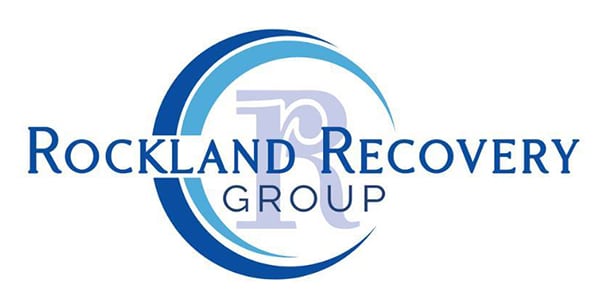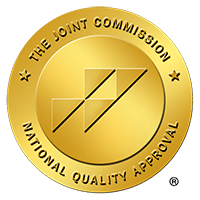Recovering from addiction is one of the most significant challenges you may ever face, but you don’t have to travel this road on your own. The best drug rehab centers offer a full spectrum of addiction treatment options that can be tailored to your unique needs. The first important step to addiction recovery is to understand what to look for when choosing a rehab center that best fits your needs.
Why Is Finding the Right Rehab Important?
Each person who seeks addiction treatment has reached this point through an individual journey, which means that effective addiction treatment never comes from a cookie-cutter approach.
Choosing the right rehab center can greatly impact the success of addiction treatment and strongly influence an individual’s ability to maintain long-term recovery. It’s important that the individual feels seen, supported, and respected in addiction recovery. If individuals don’t feel connected in these ways, they’re more likely to leave treatment before their plan is complete.
Key Factors in Selecting a Drug Rehab Center
Choosing a rehab facility deserves the same thoughtful approach as choosing a health specialist for any other type of chronic disease. Before beginning your search, it’s important to consider what type of treatment will fit your current goals, lifestyle, and life or work obligations.
Yes, addiction treatment can be temporarily disruptive to your normal routine, but there are options available that may lessen this burden. This includes offering an approach that is most likely to help you achieve remission from addiction.
If you or your loved one are in urgent need of addiction treatment, please don’t hesitate to seek help at your local hospital or nearest addiction treatment center. At Rockland Recovery, we’re here to answer your questions and help you take the first steps to addiction recovery. Our care coordinators are available to speak with you at 888-299-4833.
If you’re interested in learning more about the addiction treatment centers in your area, the Substance Abuse and Mental Health Services Administration (SAMHSA) offers an online provider directory that can help you find options locally. SAMHSA also offers a 24-hour National Helpline at 1-800-662-HELP (4357).
When you search for the best addiction treatment center for your needs, here are the main factors to consider.
Location
A rehab facility needs to be accessible for it to work for you. Most people prefer to find a treatment center that is relatively close to their home. There’s already a familiarity with the area, and you might also be aware of a center’s reputation from word of mouth.
It might also be that you prefer a treatment center that isn’t so close to home, especially if you need detox and inpatient treatment. Some people prefer to keep their addiction treatment private and feel that choosing a facility that is close to their home may jeopardize their privacy.
Cost
Cost can be a major factor in choosing an addiction treatment center. The only way to really understand what a treatment center charges for their services is to contact them directly and speak to their intake specialist or care coordinators.
It’s also important to understand how insurance can help to pay for addiction treatment. Under the ACA, insurance providers are required to provide coverage for addiction treatment. To take advantage of this coverage, look for an addiction center that works with your insurance provider.
Professional, Accredited Staff
Addiction is a serious disease that needs to be treated with the help of a qualified professional that’s highly knowledgeable in the different types of addiction, and the best treatment options to serve each individual.
Begin by learning more about the treatment center’s staff, what their areas of specialties are, and what they offer in terms of accreditation and licensing. Seek a facility that offers a clinical staff that can lead you through the physical and mental health challenges of addiction recovery.
This should include staff that is qualified to administer medication for medication-assisted treatment if this is an approach you’re approved for, as well as clinicians who are experienced in various evidence-based therapies, as well as holistic, complementary treatment options.
Types of Drug Treatment Available
When someone seeks addiction treatment, it often begins with a period of medically supervised inpatient detox. Following this, look for a center that offers a spectrum of treatment options that can be tailored to fit your circumstances and needs.
Here is an example of services and treatments on the continuum of care for addiction.
- Inpatient Treatment: This is the most structured type of addiction treatment. Inpatient treatment is a residential program where the individual can receive around-the-clock medical and mental health care, along with an intensive plan for treatment during their stay.
- Partial Hospitalization Programs (PHP): This day program is a good option for individuals who either just completed inpatient treatment, or require a high level of structure and support but either don’t need or can’t commit to inpatient treatment. PHP typically requires a commitment of six hours a day, for four or five days per week.
- Intensive Outpatient Programs (IOP): The next step along the continuum of care for addiction is IOP. Individuals commit to treatment for an average of four hours a day, several days per week. This level of care is a good fit for individuals who are beginning to move closer to recovery, but require more support and structure than traditional outpatient programs provide.
- Traditional Outpatient Programs: These include a range of individual and group therapies provided on a less structured schedule. For example, an individual may attend group therapy once or twice a week and also meet with their addiction counselor for individual treatment as needed.
- Dual Diagnosis Treatment: Mental health disorders and addiction often co-exist together. Dual diagnosis therapies treat both addiction and also contributing mental health conditions, leading to improved outcomes and a reduced risk of remission.
- Family Therapy: Family support during addiction recovery is important. If you have a family or loved one that your addiction has also impacted, a family therapy program can help everyone involved begin to heal from trauma, rebuild relationships, and provide support to each other.
- Aftercare Services: Ongoing support is important for long-term addiction recovery. Consider a rehab facility that offers aftercare planning, such as ongoing group or individual therapy and support, alumni programs, and sober living programs for those who need a transitional residence while in recovery.
Top Addiction Treatment Programs in Massachusetts
When you or your loved one are ready to take the first step toward addiction recovery, Rockland Recovery offers a spectrum of services and treatments and a compassionate, highly experienced staff who works with each person to develop an individualized treatment plan for successful recovery. Take the first step and contact us today at 888-299-4833.






